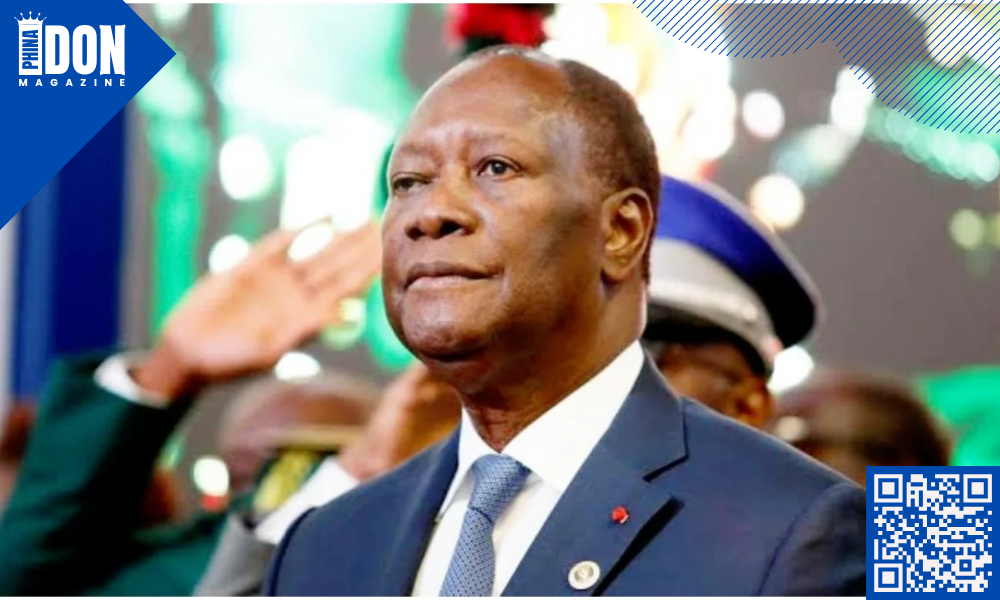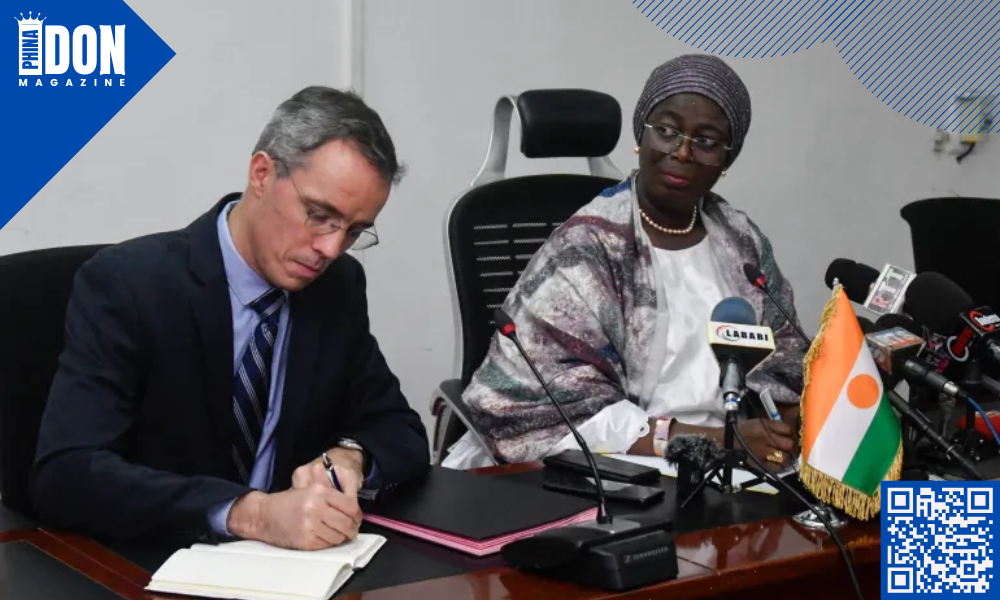Foreign
Ivory Coast President Announces Withdrawal of French Forces.

In a significant development for Ivory Coast, President Alassane Ouattara announced the planned withdrawal of French military forces during his end-of-year address to the nation on Tuesday. This decision reflects a growing confidence in the capabilities of the Ivorian armed forces and a shift in the country’s defense strategy.
President Ouattara emphasized that Ivorians should take pride in the modernization of their military, stating, “In this context, we have decided on the coordinated and organised withdrawal of French forces.” This statement marks a pivotal moment in the relationship between Ivory Coast and France, as it signals a move towards greater autonomy in national defense.
Reports indicate that France is contemplating a broader reduction of its military presence across West and Central Africa, potentially decreasing its troop levels from approximately 2,200 to around 600. This comes in the wake of France’s withdrawal from Mali, Burkina Faso, and Niger, where military coups and rising anti-French sentiments have prompted a reevaluation of its military commitments in the region.
Furthermore, the recent termination of the defense cooperation pact between Chad and France underscores a shifting landscape in West African security dynamics. As regional governments reassess their alliances, the withdrawal of French forces from Ivory Coast may signify a new era of self-reliance for the nation.
As Ivory Coast embarks on this journey towards enhanced sovereignty in defense matters, the international community will be watching closely to see how these changes will impact regional stability and security cooperation.
Foreign
UK Deploys Military Assets to Middle East Amidst Escalating Iran-Israel Conflict.

In response to the escalating conflict between Iran and Israel, the United Kingdom is deploying fighter jets and other military assets to the Middle East. Prime Minister Keir Starmer announced the deployment, stating it is for “contingency support.”
The Prime Minister has engaged in discussions with both US President Donald Trump and Israeli Prime Minister Benjamin Netanyahu, emphasizing the need for de-escalation. Foreign Secretary David Lammy has also communicated with Iranian officials, urging restraint and emphasizing the importance of protecting civilians.
The UK’s actions reflect a commitment to regional stability and a concerted effort to prevent further escalation of the conflict. Ongoing discussions with allies aim to de-escalate the situation and promote a peaceful resolution.
Foreign
A person who attacked and killed a Nigerian schoolboy with a sword in the UK has been sentenced to life in prison.

Marcus Monzo, a 37-year-old of Spanish-Brazilian descent, has been sentenced to life imprisonment with a minimum term of 40 years for the murder of 14-year-old Daniel Anjorin in Hainault, northeast London. The sentencing follows Monzo’s conviction for the unprovoked and brutal attack on Daniel, as well as attacks on other members of the public and police officers, in April of last year.
The court heard how Monzo, under the influence of cannabis-induced psychosis, initiated a violent rampage, culminating in the near-decapitation of Daniel Anjorin as the young boy walked to school. Judge Joel Bennathan strongly condemned Monzo’s actions, acknowledging the profound grief inflicted upon Daniel’s family.
Judge Bennathan also commended the bravery of the police officers involved, highlighting their courage in confronting and disarming Monzo, thereby protecting the public. Monzo’s sentence reflects the severity of his crimes and the devastating impact on the victims and the community.
Foreign
Niger to Nationalize Uranium Mine Amidst Shifting Alliances.

Niger has announced plans to nationalize the Somair uranium mine, currently operated by French nuclear firm Orano. This decision marks a further departure from France, Niger’s former colonial power, and a potential realignment with Russia. The military government, in power since a 2023 coup, accuses Orano of unfairly benefiting from the mine’s output since its launch in 1971. Orano, which holds a 63% stake in Somair, disputes the allegations and has threatened legal action, citing a “systematic policy of stripping mining assets.” This move follows Niger’s earlier removal of Orano’s operational control over key mines in the country. The nationalization reflects a broader trend in West Africa, with Mali and Burkina Faso also pursuing similar policies under military rule. The situation is further complicated by existing arbitration processes between Orano and Niger, including a recent lawsuit filed by Orano.
-

 Foreign16 minutes ago
Foreign16 minutes agoUK Deploys Military Assets to Middle East Amidst Escalating Iran-Israel Conflict.
-

 News30 minutes ago
News30 minutes agoChinese Tax Fraud Suspect Apprehended in Nigeria, Repatriated to China.
-

 Foreign23 minutes ago
Foreign23 minutes agoA person who attacked and killed a Nigerian schoolboy with a sword in the UK has been sentenced to life in prison.





